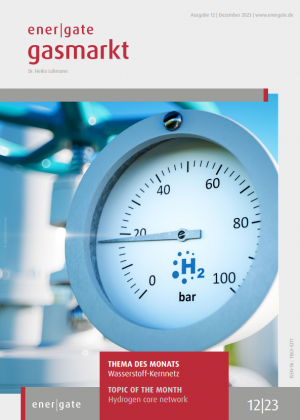In November, the development of the hydrogen grid picked up speed. Although not a single metre of pipeline has yet been laid and no pipeline section has been refurbished, the German framework conditions for hydrogen grid development are becoming clear:
On 3 November, the Federal Ministry for Economic Affairs and Climate Action (BMWK) sent the draft bill with regulations on the financing of the hydrogen grid to stakeholders for consultation. Like all regulations on hydrogen grid development, the financing rules will also become part of the Energy Industry Act (EnWG) (Section 28r and s). It was 1:10 pm on a Friday when the email was sent to the stakeholders. After all, there was time to comment by 5 pm on Monday, 6 November. The tough schedule did not amuse some market participants. The ministry imposed the early deadline because the cabinet was due to approve the regulations on 15 November, which it eventually did.



